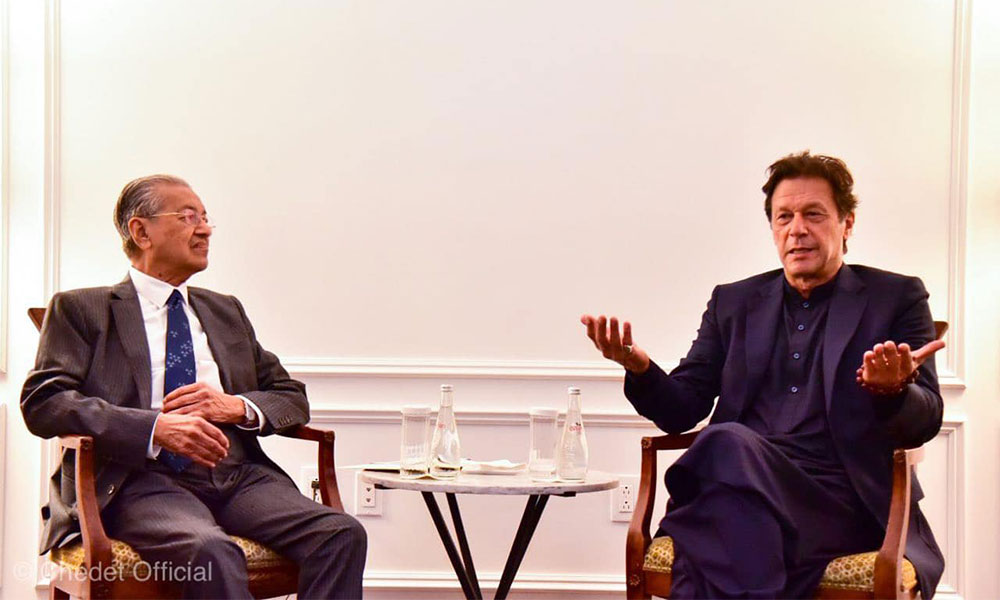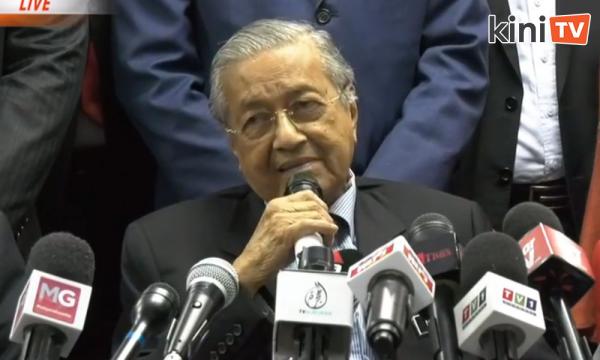Muslims were once trail-blazers in the pursuit of knowledge and technology, gaining fame and glory along the way as their contributions were heralded by other civilisations.
But centuries later, Muslims find themselves in a sorry state of affairs – being chased out of their own country, labelled as terrorists, their countries mired in war and conflict to the extent that some are ungovernable, and being the targets of Islamophobia, among other problems.
Concerned over this cauldron of woes engulfing the community, Malaysia along with a number of like-minded countries are spearheading efforts to understand what has gone wrong – with a view to eventually reclaiming the Muslim world’s fame and glory of yore – by organising the Kuala Lumpur (KL) Summit next month.
“The KL Summit intends to focus on all these problems to find out why we’re in such a state and, perhaps, with an understanding of the reasons, we may map out a way to reduce, if not eliminate, all these problems faced by the Muslims,” Prime Minister Dr Mahathir Mohamad said.
“That is the purpose of the KL Summit. Maybe, it can be regarded as the first step towards rebuilding the great Muslim civilisation,” he briefed the media in Putrajaya recently on the proposed December gathering in the Malaysian capital.
Queried on the need to have a separate summit to raise these concerns rather than using established platforms such as the Organisation of Islamic Cooperation (OIC), Non-Aligned Movement (NAM) or Asean, Mahathir said he believes in ‘’small beginnings’’ and in not being too ambitious.
“We want to begin with, perhaps, a few people who have the same perception of Islam and the problems faced by Muslims. Later on, of course, others may join in,” he said.
Elaborating, Mahathir said: “Many Muslim countries are facing trouble and have to attend to their problems, but these three countries, plus Qatar and Indonesia, I think, can have the time to spare to attend to this very important matter.”
The three countries he was referring to are Pakistan, Turkey and Malaysia.

The planned summit traces its roots to discussions that took place in New York City involving Mahathir, Pakistan Prime Minister Imran Khan (above, right) and Turkey’s president Recep Tayyip Erdogan on the sidelines of the United Nations General Assembly last September.
Following the meeting, Imran Khan had tweeted about the proposed setting up of a television channel dedicated to confronting the challenges of Islamophobia and setting the record straight about Islam.
“We got to talking about the problems faced by the Muslim world and Muslims and, in the end, we find that people misunderstand us (Muslims). And that misunderstanding is caused by negative publicity by people who’re not really supportive of Muslims,” Dr Mahathir said at the Putrajaya media briefing.
To counter that, he said, Muslims need to tell their side of the story, and one of the ways to do it is via television that devotes its content, among others, to explaining Islam, highlighting its achievements and shedding light on why certain Muslims commit acts labelled as terrorism which Islam is against.
“This TV station is very important. It (the broadcast) will cover the whole world; it will come in English and other languages. In the process, we hope that people will understand Islam better, not only the non-Muslims, but also the Muslims,” he said.
The channel, he explained, will also serve as a means to bring Muslims back to the true teachings of Islam as found in the Quran.
“Most of us will find that the problem is not our religion but the problem is that we’ve deviated from the true teachings of Islam,” the prime minister said, citing the example of the Islamic view on the act of killing.
“Islam forbids us from killing, as to kill one man is like killing all of humanity, and you are not supposed to kill fellow Muslims.
“But people are doing that and seem to be very happy to go against the teachings of Islam. That’s why we have all these problems,” Mahathir said.
Mahathir drove home the point that Muslims were successful before precisely because they followed the teachings of the Quran.
But somewhere along the line, he said, Muslims became weak when they did not give enough attention to the pursuit of knowledge beyond religion, and became divided with the emergence of various sects.
- Bernama


